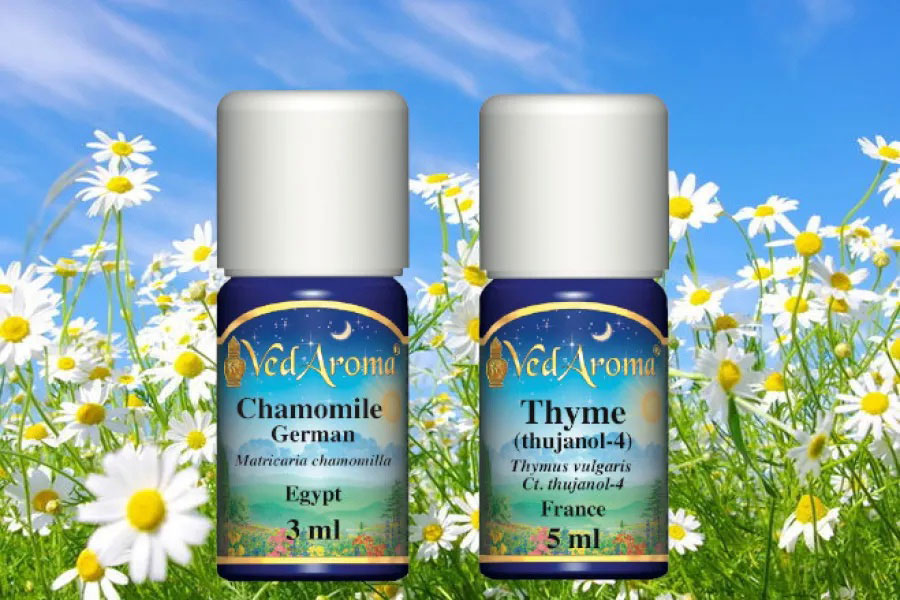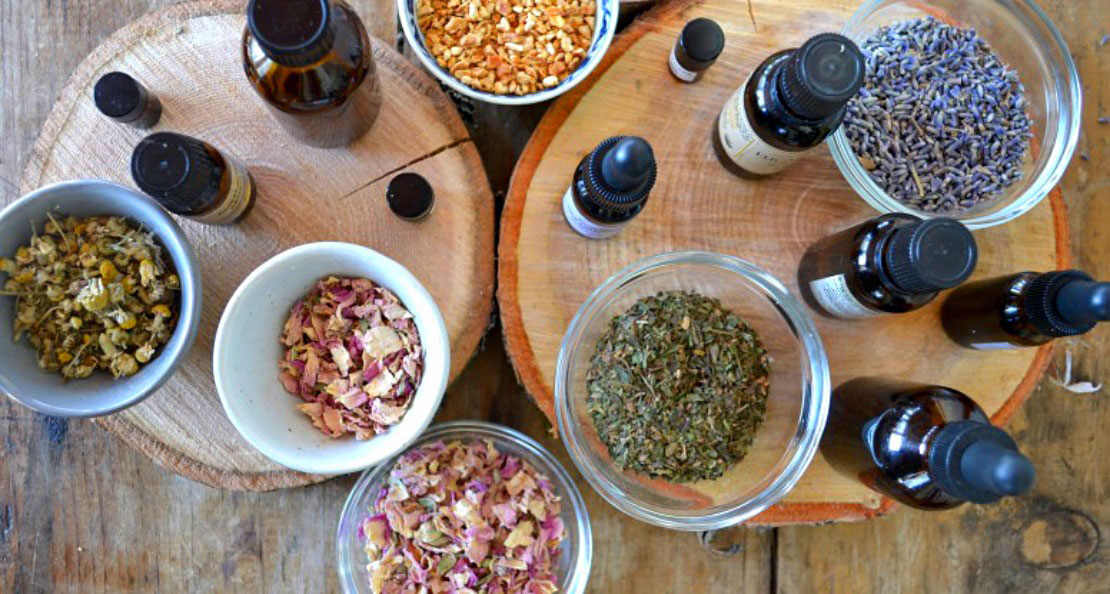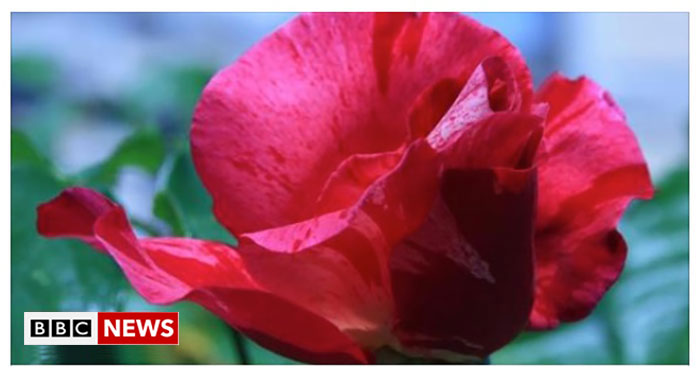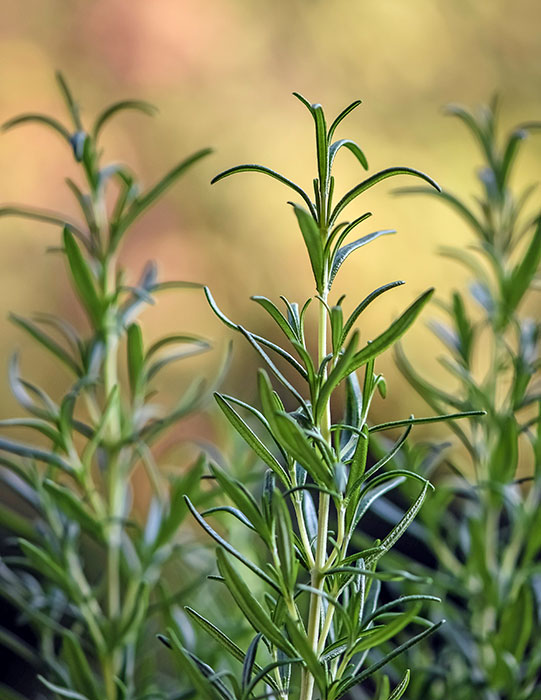Scientific Research –
continued
Chamomile, Thyme Oil Destroy over 90% of Breast Cancer Cells
Natural Anti-Cancer Solutions
There is a myriad of natural foods and compounds that have been studied for their disease-preventing and even disease-treating abilities. While the pharmaceutical industry pushes patented drugs that cause numerous side-effects, researchers are unveiling how we can use nature’s gifts to prevent and treat ailments ranging from diabetes, to arthritis, to even cancer. For example, Chinese researchers have shown how oils as simple as chamomile or thyme can kill up to 90+ percent of breast cancer cells.
Studying some of the most popular essential oils in current use, such as mint, ginger, lemon, grapefruit, jasmine, lavender, chamomile, thyme, rose, and cinnamon, researchers sought to discover how these oils may combat cancer. They did so by testing antibacterial potency as well as in vitro toxicology against human cancer cell lines. The cancer cell lines evaluated were the MCF-7 breast cancer cells, the A-549 lung cancer cells, and the PC-3 prostate cancer cells.
At a concentration of about 0.2%, all of the essential oils were relatively effective at inhibiting both the prostate cancer cells and the lung cancer cells, with the exception of mint essential oil.
Though when it came to the breast cancer cell lines, some of the oils were especially effective. Essential oils from cinnamon, thyme, chamomile, and jasmine were significantly potent against the breast cancer cells lines, offering greater protection.
The breast cancer cells were mostly destroyed by all four of these oils, with chamomile killing up to 93% of them in vitro. Even more effective was thyme oil, which led to a 97% kill rate of the MCF-7 breast cancer cells. Though it is important to remember that this research was performed in vitro – meaning that the cells were studied outside their normal biological context – like in a petri dish.
“For MCF-7 cell, the cytotoxicities of cinnamon, thyme, chamomile, and jasmine essential oils was significantly stronger than that of the other six essential oils,” explains the study. “The fractions of viable cells were reduced to 5.31%, 3.47%, 6.93% and 4.34%, respectively.”
Complimenting the findings of this research, another study published in the journal Industrial Crops and Products found that chamomile oil harnesses powerful antioxidant properties. The research, evaluating 11 essential oils including lavender, thyme, winter savory, rosemary, sage, peppermint, French tarragon, bitter, and sweet fennel, found Roman chamomile to have the highest antioxidant activity.
“Thyme and winter savory oils exhibited the greatest inhibition against the growth of all the tested organisms possibly due to the high content of thymol and carvacrol respectively,” states the study’s abstract.

Purity, Processing, Terminology
info: booklets, website, industry
From Vedaroma Essential Oil booklet:
Highest Quality
It is very important to use only the highest quality, 100% natural, and completely pure essential oils from wild or organically grown plants.
Maxium Potency
The oils must be distilled slowly and under low pressure to ensure maximum potency and effectiveness.
Proper Storage
In order to maintain their high quality and strength, they need to be stored in dark-coloured bottles, in a cool place away from direct sunlight.
From Vedaroma.com Website:
Slow Distillation at Lower Temperatures
The distillation process is also crucial to the quality of the oils. If an essential oil is distilled too quickly (at high pressure, high temperature), many of these precious elements are lost.
Maximum Active Components
In the organic process, slow distillation at lower temperatures ensures the maximum retention of active components in the oils, which contributes to their special aromatic and therapeutic effect.
Exceptional Purity and Highest Quality
VedAroma offers an outstanding selection of certified organic or wild harvested essential oils, exceptional in their purity and high quality.
Purity of Plant
They are derived from plants that are grown without the use of chemical fertilizers, herbicides, pesticides, or fungicides and they are distilled slowly and under low pressure to ensure maximum potency and effectiveness.
Certified Organic or Wild-Harvested
Some of our essential oils are certified organic wild crafted, which means derived from wild-grown plants that have not undergone chemical treatment and have been harvested and distilled according to certified organic regulations (for example, Eucalyptus, Tea Tree, Siberian Pine, etc.)
From Sherilyn Siegmund-Roach “Herbal Academy”:
https://theherbalacademy.com/author/ssiegmund-roach
https://theherbalacademy.com/how-to-choose-high-quality-essential-oils
Excerpt:
Terminology
Therapeutic or clinical grade
Recently, terms such as “therapeutic grade” or “clinical grade” have been used by essential oil suppliers to claim the superiority of their oils over other suppliers’ oils.
No Standardized Terms
These terms are not standardized and mean whatever the supplier using them wants them to mean. These suppliers are not necessarily being misleading about their essential oils, yet the terms they are using are not standardized within the industry to meet any specific criteria.
Organic, Unsprayed, or Wildcrafted
Look for oils that are organic as a first choice. Any pollutants on the plants can be more concentrated in the essential oil. This is especially important for citrus essential oils, as they are traditionally heavily sprayed with pesticides.
Organic Meaning
The term “organic” means different things in different countries, but it is one more possible indicator of quality. Some retailers also carry oils that are “unsprayed,” where the farms are not certified as organic, but they do not spray their crops, and many high quality oils are also wildcrafted.
https://theherbalacademy.com/how-to-choose-high-quality-essential-oils

BBC: Genetic Secrets of the Rose Revealed
Take Time to Smell the Roses
…the saying goes, and, according to scientists, the fragrant flowers could smell even sweeter in the future.
For the first time researchers have deciphered the full genetic “book” of this most prized of plants.
The secret history of the rose reveals surprises – it is more closely related to the strawberry than we thought.
And in the long term the work could lead to roses with new scents and colours, says an international team.
Read More: http://www.bbc.com/news/science-environment-43950743#

Exam revision students ‘should smell rosemary for memory’
With the Exam Season Approaching…
and revision under way, university researchers have suggested that the smell of rosemary could enhance memory
A study found that pupils working in a room with the aroma of rosemary, in the form of an essential oil, achieved 5% to 7% better results in memory tests.
Mark Moss from Northumbria University said the findings were consistent with tests on adults.
Dr Moss said the study supported traditional beliefs about rosemary.
He said that rosemary had been associated with memory for hundreds of years.
Ancient Greek students wore garlands of rosemary in exams – and Ophelia, in Shakespeare’s play Hamlet, says: “There’s rosemary, that’s for remembrance.”
Herb power
The study, to be presented this week at the annual conference of the British Psychological Society, will back the “received wisdom” that rosemary can assist memory.
In the tests carried out by Dr Moss and Victoria Earle, 40 pupils aged 10 and 11 carried out a series of memory tests in rooms with and without the aroma of rosemary.
The pupils did not know they were taking part in memory tests related to scent – but Dr Moss said that those exposed to rosemary had on average an improvement of 5% to 7% in results.
What works for you and your family during the stresses of exam revision? You can join the debate at the BBC’s Family & Education News Facebook page.
This small-scale test followed up earlier research on adults which had suggested a link between rosemary and memory.
Dr Moss said it confirmed that children as well as adults seemed to be influenced.
But he said there was variability in the level of impact and some people did not seem to respond at all.
‘Electrical activity’
He said the human sense of smell is highly sensitive and sends messages to the brain, setting off reactions and responses.
There are neurotransmitters in the brain associated with memory and Dr Moss suggests that these can be affected by scents.
He described it as “almost like a drug interaction” where the brain is influenced by what is being inhaled.
“It could be that aromas affect electrical activity in the brain or that pharmacologically active compounds can be absorbed when adults are exposed,” he said.
Dr Moss said the next step should be to extend the study, with “large-scale trials of aroma application in education settings.”


